How to relax: 7 relaxation techniques to help relieve stress
Discovering new relaxation techniques to help relieve stress – be it with an activity or natural medication – can swiftly reduce stress levels. So what will suit you best?
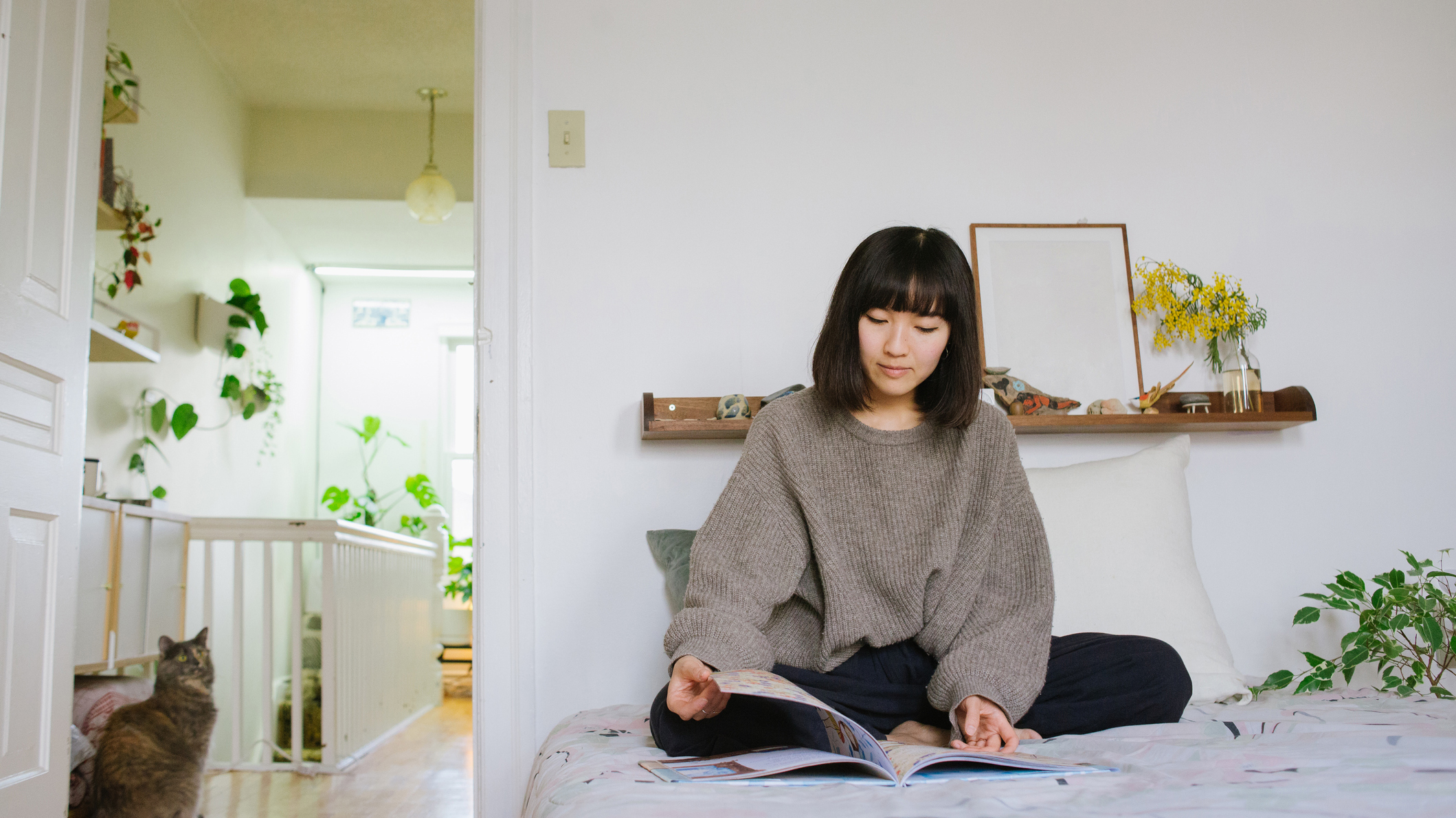
Figuring out how to relax in the last few months has not been easy - uncertainty and anxiety have been rife, and some of our usual go-tos like hanging out with friends may no longer be an option. While relaxation techniques are an essential addition to our wellbeing toolkit, a much needed zen state is not always easy to accomplish.
- Try the best meditation apps that will help you de-stress fast
“In essence, relaxation has virtually the opposite effect to stress, lowering heart rate, boosting immunity and enabling the body to thrive,” says natural health and wellness expert Dr Tim Bond. “An example is when women menstruate, they often find taking a long bath or doing some gentle relaxation exercises helps their general wellbeing.”
Sounds great, but our hectic lives often prevent us from finding – and utilising – what’s best for us. In order to move away from the sympathetic (fight or flight) response and activate the parasympathetic (rest and digest) response, we must trust our instincts and choose what produces the most satisfaction.
“It’s about finding out what's right for you,” says Dr Megan Jones Bell, chief science officer at Headspace. “Breathing can be a powerful way to help us reset and activate our natural relaxation response, so one of the easiest and most accessible ways for anyone to relax, in any setting, environment or activity, is to focus on the breath.”
If you’ve been struggling to find a bit of peace in your life recently, try these quick and effective ways to put you back on the path to wellness.
7 relaxation techniques to relieve stress
Creating
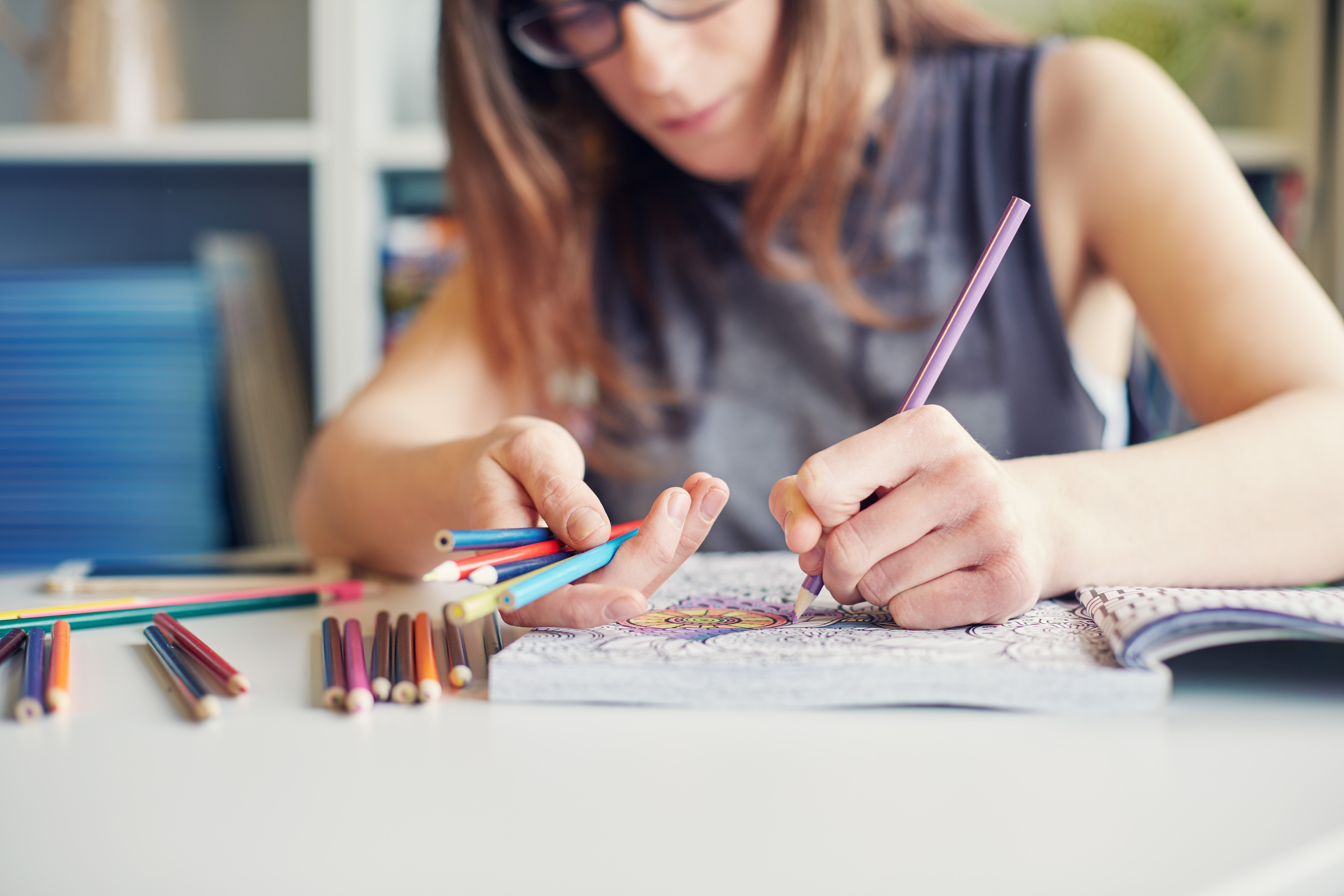
Creating can be anything, from taking an art class or colouring in, to crafts or jigsaw puzzles. These forms of active mediation allow us to settle our overworked brains and focus on the here and now.
“Art has the power to heal, increase wellbeing and reduce anxiety. Researchers liken creating art to exercise for the brain, and studies consistently show that creating art helps individuals cope with stressful and difficult situations,” says Scott Phillips, co-founder of Rise Art.
Organising

If your mum ever said ‘tidy house, tidy mind’, she wasn’t just trying to persuade you to clean your room – the chances are she recognised the positive effects of an ordered environment.
And, with research showing that working up a sweat while cleaning improves mental health and boosts mood, it’s more important than ever to create a Zen home.
ASMR
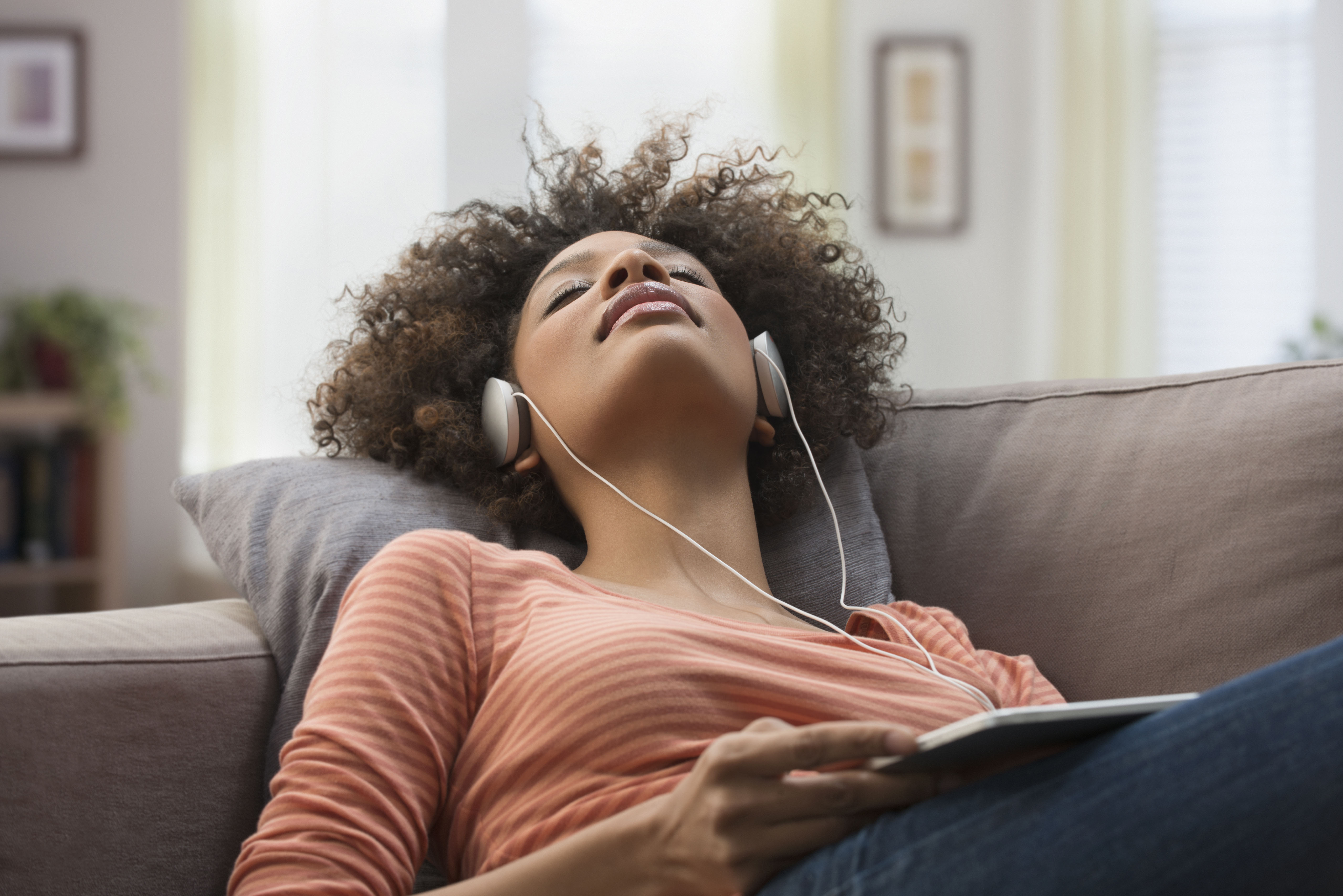
For those who enjoy Autonomous Sensory Meridian Response (ASMR), the experience can be nothing short of profound. ASMR enthusiasts love the de-stressing effects of listening to sounds, such as whispering, eating, or rainfall.
The theory behind these stimuli is the release of feel-good chemicals – endorphins, dopamine, oxytocin and serotonin – into our bodies, which decrease stress and aid relaxation and sleep. “ASMR is consistently helpful at bringing comfort, peace and calmness to busy brains when an overactive mind is preventing a desired feeling of calmness,” explains Dr Craig Richard, founder of ASMR University.
“While it can’t cure or prevent any form of illness, it may help reduce feelings of stress or sleeplessness.”
Salt bathing
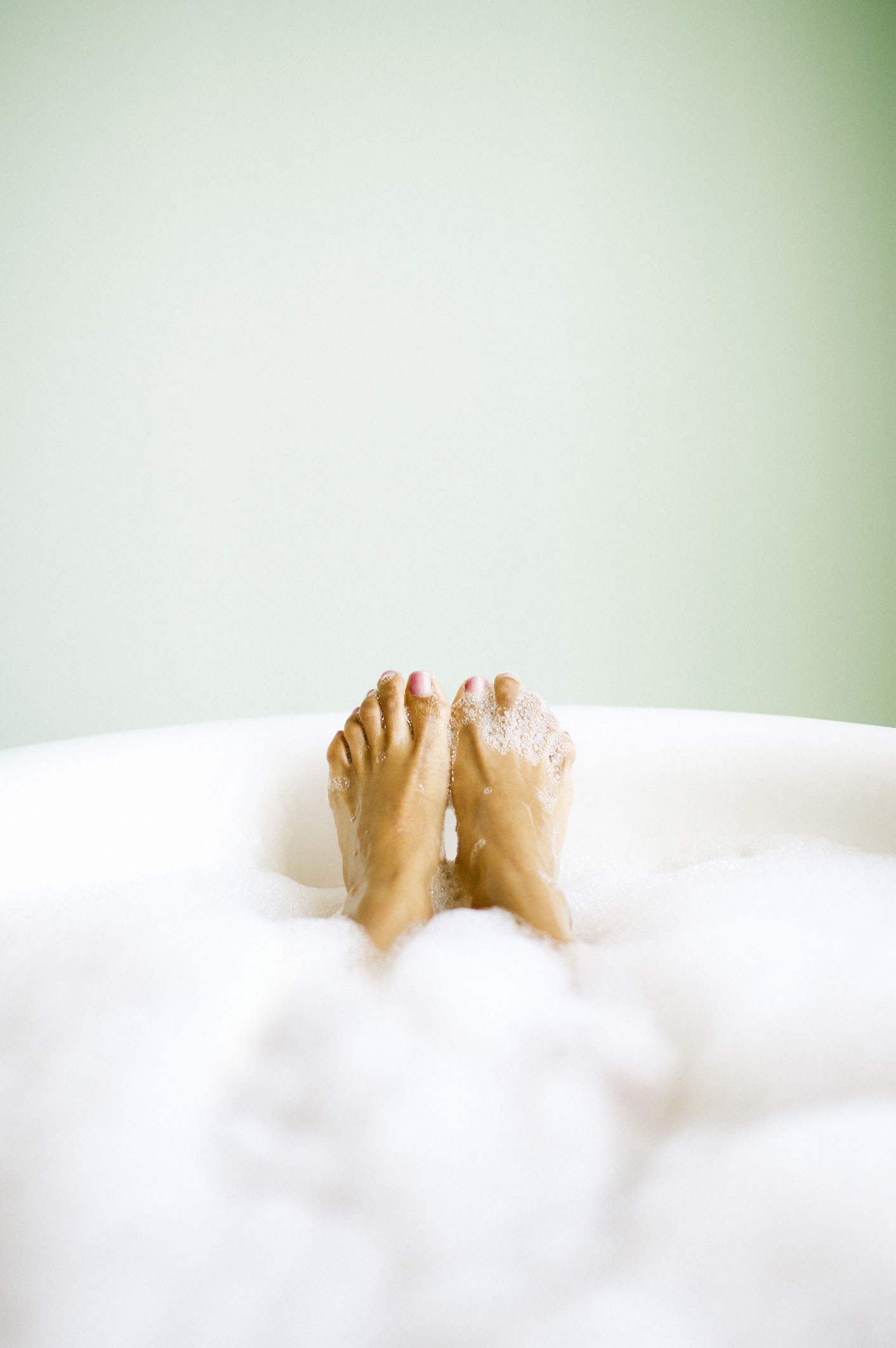
Salt baths have long been regarded as an elixir to combat stress and encourage relaxation, and the secret lies in magnesium. ‘“Individuals who suffer with mental-health illnesses have been found to have lower platelet serotonin levels,” explains Karen Davis, Westlab Chief Pharmacist.
“There are different ways to increase serotonin, including magnesium intake,” she adds. “This is best absorbed through the skin.”
Everyday mindfulness
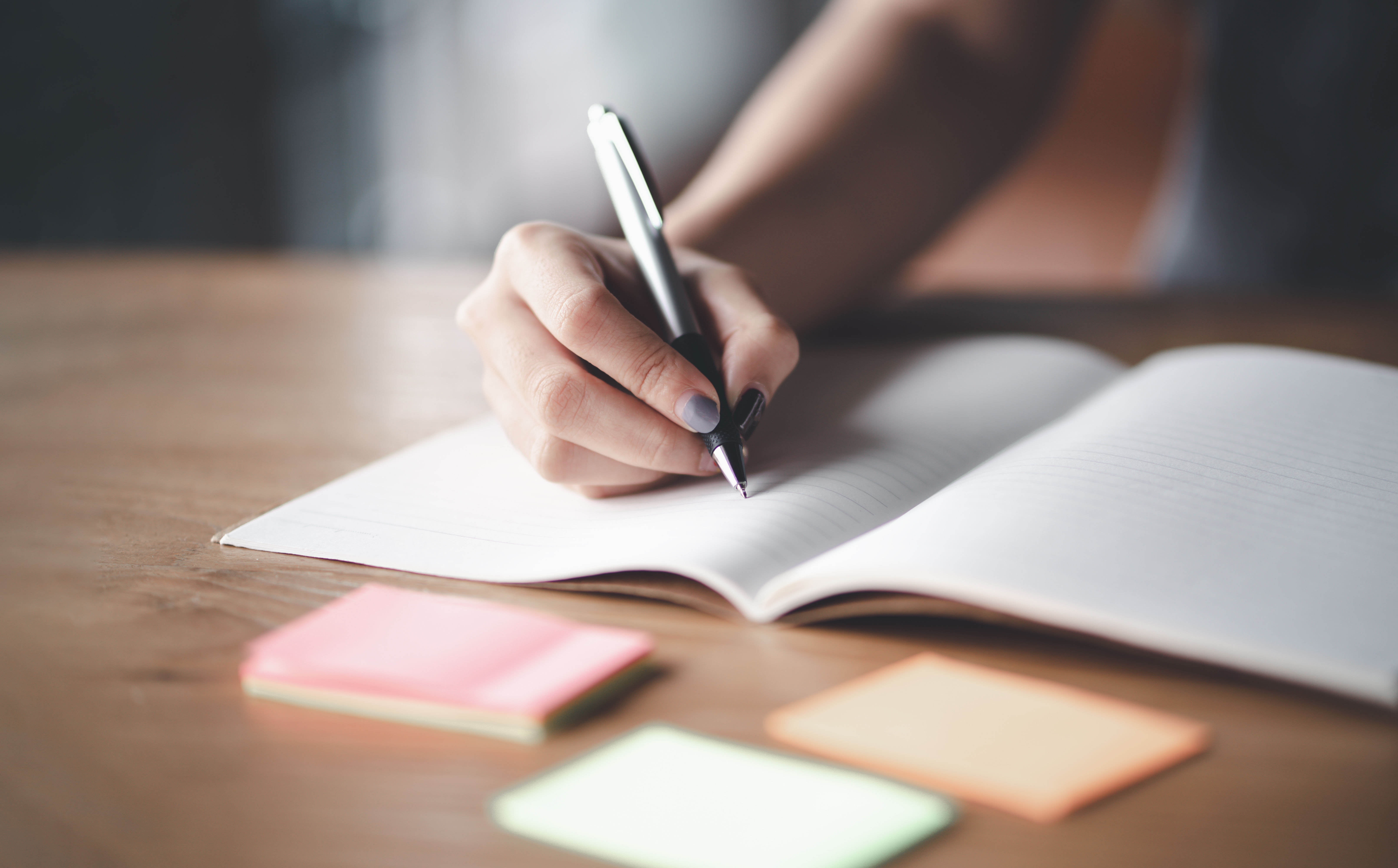
Contrary to popular belief, mindfulness isn’t about sitting quietly and meditating, which can take time and practice.
“We can introduce relaxation into our daily life by simply trying to be more mindful in our everyday tasks,” explains Dr Jones Bell. “This could be as simple as mindful hand-washing, making a cup of tea or taking moments to pause and check in with yourself.
“Rather than getting lost in the frustration of a task, acknowledge it, accept it, sit with it, focus on your breathing and bring your attention back to how you’re feeling and why. This will help you be intentional in every interaction and can bring about a more relaxed state of being,” she says.
Neo-Luddism
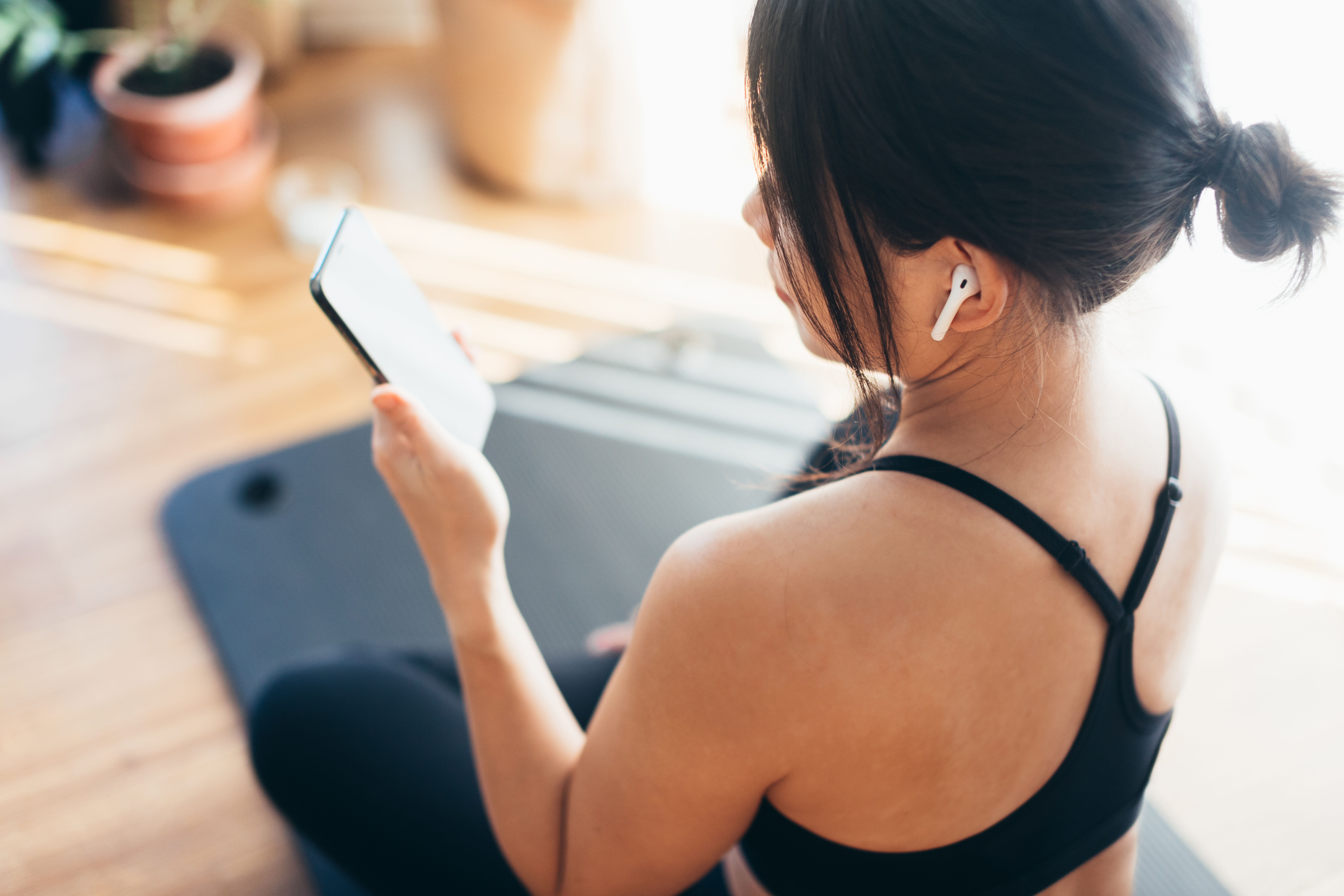
For those of us attached to our phones and laptops, a little neo-Luddism goes
a long way, because if you’re constantly distracted by your phone or email you’ll never relax. Neo-Luddites reject modern technology and so can you.
“Give it a go, even for an hour, and see what difference it makes,” says burnout coach Rosie Millen.
Sound therapy
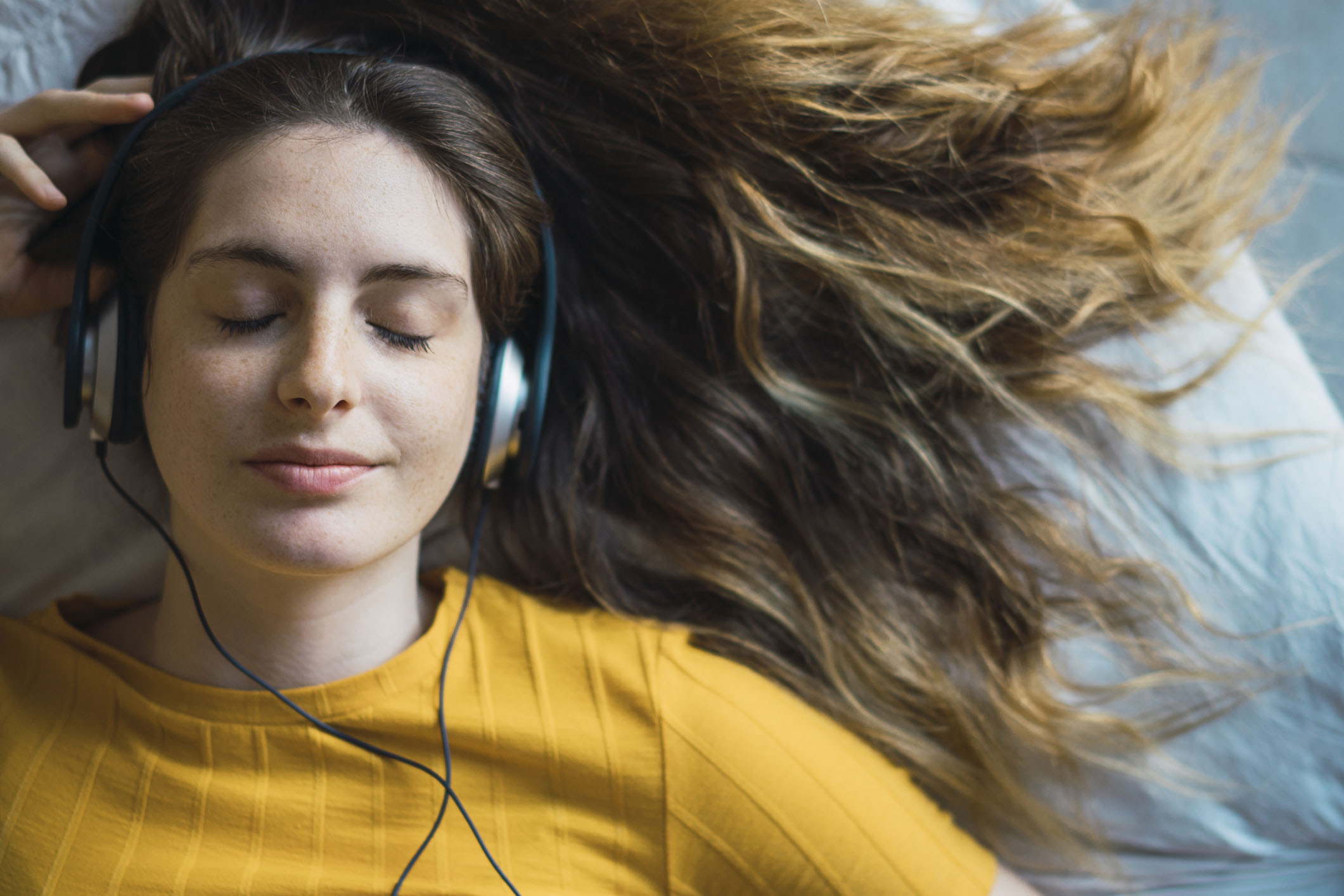
Sound therapy - such as drumming, singing, chanting and gong baths - has been used for centuries to help people enter a more relaxed, meditative state and promote wellbeing and healing. Now, thanks to modern technology, there’s a new-ish kid on the block – binaural beats.
Through headphones, listeners receive a different sound frequency to each ear, which the brain interprets as a particular rhythmic frequency.
These sounds create specific neural responses that, depending on the frequency, induce one of five brainwave states that can aid sleep and ease pain (delta brainwaves), help you relax or meditate (theta), reduce stress (alpha), improve concentration and focus (beta), and enhance memory (gamma).
Look up binaural beats on YouTube or sign in to Spotify and search for ‘the most relaxing songs ever according to science’. Backed by neuroscientists, it’s so effective that it’s strongly recommended you don’t drive while tuning in.